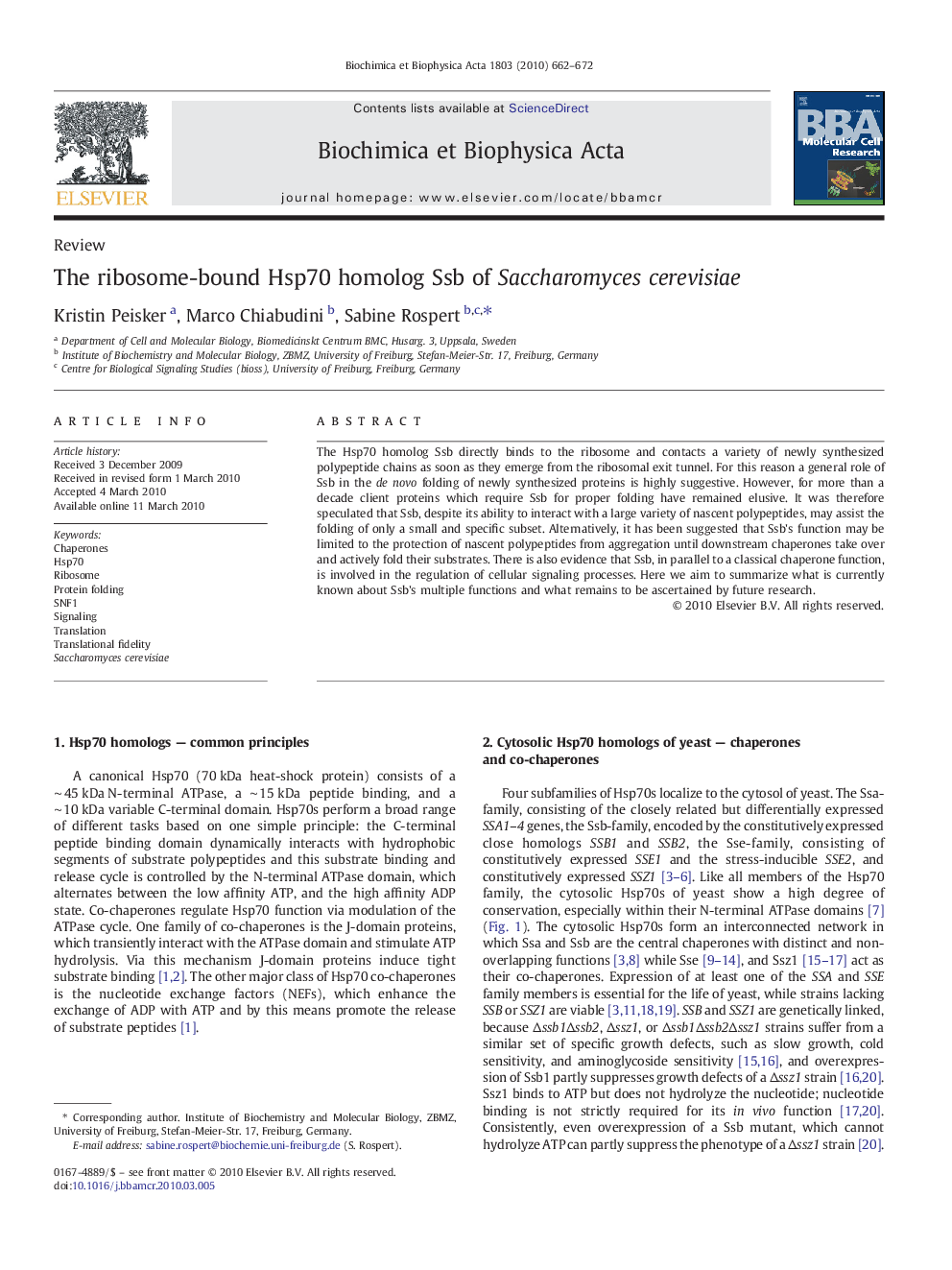| کد مقاله | کد نشریه | سال انتشار | مقاله انگلیسی | نسخه تمام متن |
|---|---|---|---|---|
| 1951019 | 1055732 | 2010 | 11 صفحه PDF | دانلود رایگان |

The Hsp70 homolog Ssb directly binds to the ribosome and contacts a variety of newly synthesized polypeptide chains as soon as they emerge from the ribosomal exit tunnel. For this reason a general role of Ssb in the de novo folding of newly synthesized proteins is highly suggestive. However, for more than a decade client proteins which require Ssb for proper folding have remained elusive. It was therefore speculated that Ssb, despite its ability to interact with a large variety of nascent polypeptides, may assist the folding of only a small and specific subset. Alternatively, it has been suggested that Ssb's function may be limited to the protection of nascent polypeptides from aggregation until downstream chaperones take over and actively fold their substrates. There is also evidence that Ssb, in parallel to a classical chaperone function, is involved in the regulation of cellular signaling processes. Here we aim to summarize what is currently known about Ssb's multiple functions and what remains to be ascertained by future research.
Journal: Biochimica et Biophysica Acta (BBA) - Molecular Cell Research - Volume 1803, Issue 6, June 2010, Pages 662–672